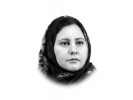The Russian mind
Like all great civilisations, Russia has evolved through a long history of political thought. At the end of Imperial Russia, along with the ideas of civilisational pluralism with Europe and a unique Russian identity, there were also ideas of anarchism, anti-state revolution and radical liberalism.
Later, with the Soviet Union, came strict Marxism, socialism, egalitarianism and the revolutionary thoughts of Lenin and Trotsky. When the USSR broke down in 1991, Russia was forced to revise its political thought and seek its identity in a new unipolar environment.
Yevgeny Primakov, post-USSR's intelligence chief and foreign minister, talked about multipolarity over unipolarity at a time when the US was crowning itself as the king of the unipolar world.
The Primakov Doctrine argued that the US-led unipolar world was unstable and unjust; not only undesirable but impossible in principle. He envisioned a "strategic triangle" between Russia, China and India to balance off US dominance and ensure Eurasian stability. He wanted integration of the CIS (Commonwealth of Independent States) region as Russia's strategic sphere and opposed Western interventionism in it. In a mutilated USSR, his realism had learned to respect state sovereignty and lean on pragmatic cooperation and non-interference.
Followed by him is Russia's contemporary political theorist, Alexander Dugin, referred to as 'Putin's brain'. Dugin connects with Primakov's multipolarity and a Russia-led Eurasian civilisation that counters Atlanticism. Building on that, he deems Russia to be leading the 'multipolarity by platforms' ideas,........






















 Toi Staff
Toi Staff Sabine Sterk
Sabine Sterk Penny S. Tee
Penny S. Tee Gideon Levy
Gideon Levy Waka Ikeda
Waka Ikeda Mark Travers Ph.d
Mark Travers Ph.d Grant Arthur Gochin
Grant Arthur Gochin Tarik Cyril Amar
Tarik Cyril Amar Chester H. Sunde
Chester H. Sunde
